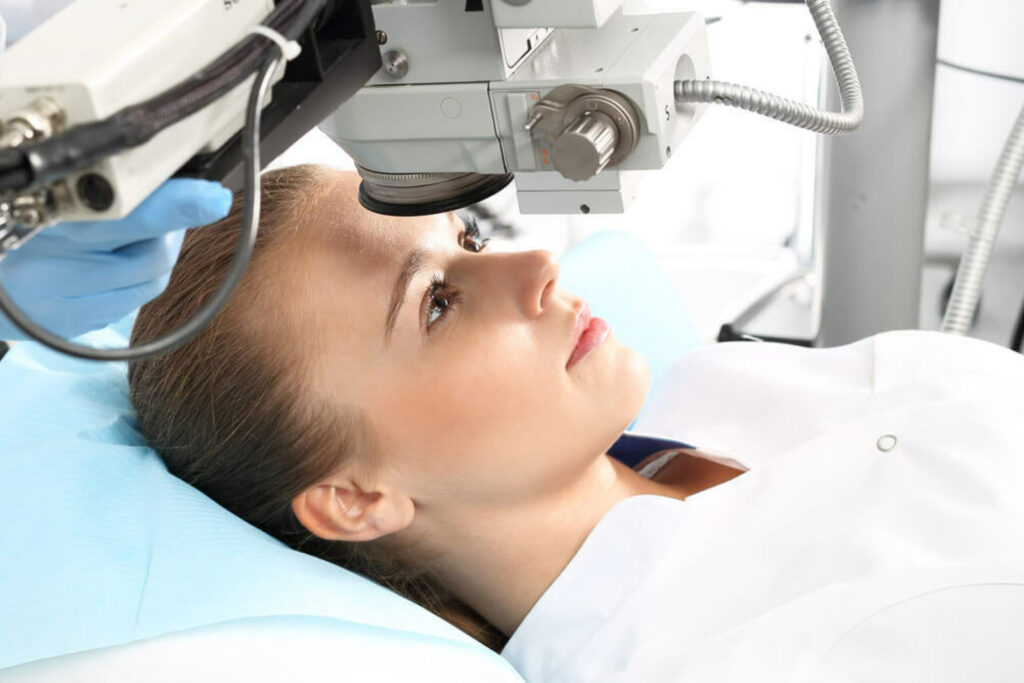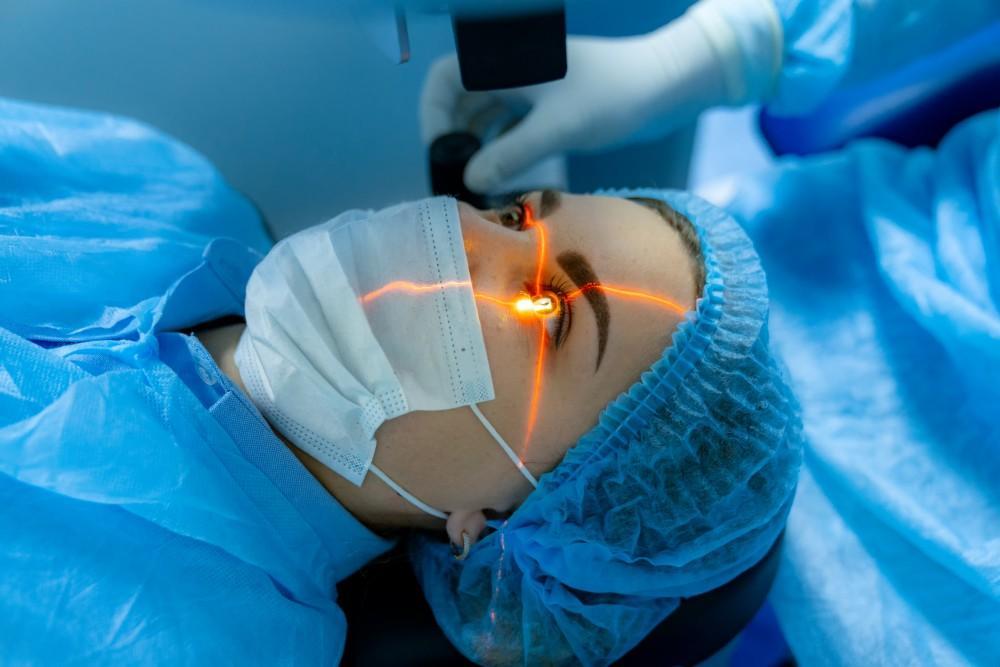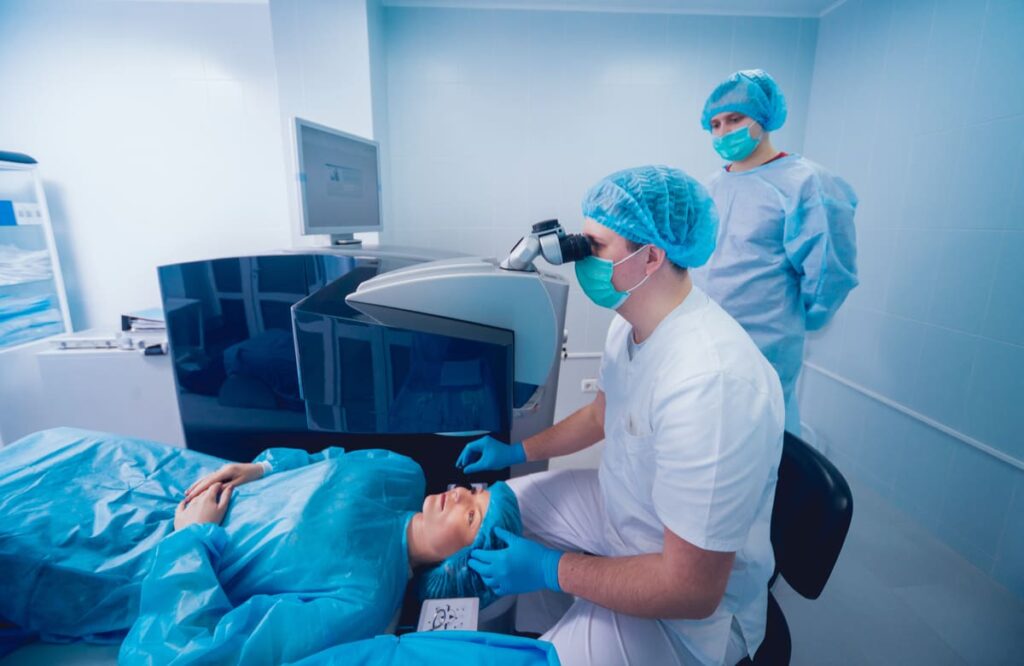LASIK surgery has emerged as a popular and effective solution for individuals seeking to improve their vision. This procedure utilizes advanced technology to reshape the cornea, correcting common refractive errors such as nearsightedness, farsightedness, and astigmatism. Understanding the science behind LASIK and the step-by-step process involved can help demystify this procedure and allow potential candidates to make an informed decision.
Understanding LASIK Surgery
Furthermore, the enhanced vision quality obtained through LASIK surgery can lead to improved productivity and performance in various aspects of life. Whether it’s reading small print, working on a computer, or driving at night, clear vision can make daily tasks easier and more efficient. This boost in visual acuity can also contribute to a higher quality of life and overall well-being.
The Science Behind LASIK
LASIK, or Laser-Assisted In Situ Keratomileusis, is a revolutionary surgical procedure that has transformed the field of ophthalmology. By reshaping the cornea to correct refractive errors, LASIK has provided millions of people with clearer vision and reduced dependency on glasses or contact lenses. The cornea, a transparent dome-shaped layer covering the front of the eye, is responsible for focusing light onto the retina, enabling us to see the world around us with clarity.
During LASIK surgery, the patient’s eye is numbed with anesthetic eye drops to ensure comfort throughout the procedure. The surgeon then uses advanced technology to precisely map the surface of the cornea, determining the exact areas that need to be reshaped for optimal vision correction. This personalized approach ensures that each patient receives a tailored treatment plan based on their unique eye structure and refractive error.

The LASIK Procedure Step-by-Step
The LASIK procedure is a meticulously orchestrated series of steps that prioritize accuracy and safety. To begin, the surgeon creates a thin flap on the cornea, either using a microkeratome blade or a femtosecond laser. This flap creation process is crucial, as it allows the surgeon access to the underlying corneal tissue without disrupting the eye’s delicate structures.
With the corneal flap gently lifted, the surgeon then utilizes an excimer laser to sculpt the cornea with remarkable precision. This specialized laser emits cool ultraviolet light pulses, removing microscopic amounts of tissue to reshape the cornea’s curvature. The excimer laser’s ability to sculpt the cornea without generating heat is a key factor in ensuring the safety and effectiveness of the procedure.
Once the corneal reshaping is complete, the surgeon carefully repositions the flap, where it naturally reattaches without the need for sutures. This flap serves as a natural bandage, protecting the treated area as the cornea begins its rapid healing process. Patients often experience improved vision within a matter of hours or days, with many achieving 20/20 vision or better after LASIK surgery.
Who is a Suitable Candidate for LASIK?
Evaluating Your Eye Health
Before undergoing LASIK surgery, it is essential to undergo a comprehensive eye evaluation to determine if you are a suitable candidate. Factors that may impact your eligibility include the overall health of your eyes, the presence of certain eye conditions, and the stability of your vision.
Your eye doctor will conduct various tests and examinations, assessing the shape and thickness of your cornea, measuring your refractive error, and evaluating the overall health of your eyes. Based on these findings, they will determine if LASIK is a safe and appropriate option for you.
It’s crucial to note that individuals with certain eye conditions, such as keratoconus or severe dry eye syndrome, may not be suitable candidates for LASIK. These conditions can affect the healing process and overall outcome of the surgery. Additionally, individuals with unstable vision, such as those experiencing frequent prescription changes, may need to wait until their vision has stabilized before considering LASIK. Learn more about keratoconus on https://healthcare.utah.edu/moran/ophthalmology/corneal-disease/dystrophies/keratoconus
Age and LASIK Surgery
Age is an important consideration when determining if LASIK surgery is suitable for an individual. While there is no upper age limit for LASIK, it is generally recommended for individuals over the age of 18, as their eyes have typically stabilized by this point.
If you are under the age of 18, your eye doctor may suggest alternative vision correction methods, such as glasses or contact lenses, until your eyes have fully matured and stabilized.
On the other end of the spectrum, older individuals may still be suitable candidates for LASIK as long as they meet the necessary criteria. However, factors such as the presence of age-related eye conditions like cataracts may need to be taken into consideration during the evaluation process. Your eye doctor will assess your overall eye health and discuss any potential risks or limitations based on your age and individual circumstances.
The Benefits of LASIK Surgery
Improved Vision Quality
One of the most significant benefits of LASIK surgery is the improvement in vision quality. By correcting refractive errors, LASIK allows individuals to achieve clear, crisp vision without the need for glasses or contact lenses. Many patients experience a drastic reduction in dependence on corrective eyewear, often achieving near-perfect vision.
Lifestyle Benefits of LASIK
LASIK surgery can also have a profound impact on an individual’s lifestyle. With improved vision, many patients find themselves more comfortable and confident participating in various activities, such as sports and outdoor adventures. The freedom from glasses and contact lenses also simplifies daily tasks, such as applying makeup or swimming. Click here to read more about swimming.
Moreover, the lifestyle benefits of LASIK extend beyond convenience and confidence. Patients often report a newfound sense of freedom and spontaneity in their daily lives, no longer constrained by the limitations of wearing glasses or dealing with the hassle of contact lenses. This newfound independence can lead to a more active and fulfilling lifestyle, opening up opportunities for travel, hobbies, and social interactions.

Potential Risks and Complications of LASIK
When considering LASIK surgery, it is essential to weigh the potential risks and complications that may arise. While LASIK is known for its safety and effectiveness, it is crucial to be informed about all possible outcomes.
Short-Term Side Effects
One of the common short-term side effects of LASIK surgery is experiencing dry eyes. This occurs as a result of the temporary disruption of the corneal nerves during the procedure. Patients may also notice halos around lights, glare, or experience temporary discomfort or sensitivity in their eyes. These side effects are typically transient and tend to diminish within a few weeks or months post-surgery.
It is important to follow post-operative care instructions diligently to help alleviate these short-term side effects and promote optimal healing of the eyes. Your eye doctor will provide guidance on how to manage these symptoms and ensure a smooth recovery process.
Long-Term Risks
While rare, there are long-term risks associated with LASIK surgery that patients should be aware of. These risks include the potential for corneal thinning, which can affect the structural integrity of the cornea over time. Additionally, there is a slight risk of developing corneal infections or scarring post-surgery, although these occurrences are uncommon.
Another long-term risk to consider is the possibility of irregular astigmatism, which can result in distorted or blurred vision. It is essential to have a thorough discussion with your eye care provider about these potential complications and how they may impact your vision in the long run.
Preparing for LASIK Surgery
What to Expect at Your Consultation
Prior to LASIK surgery, you will have a consultation with your surgeon to discuss your candidacy, explore your expectations, and address any concerns or questions you may have. During this consultation, your eye doctor will perform additional tests to finalize your treatment plan and ensure optimal outcomes.
At the consultation, your surgeon will conduct a thorough examination of your eyes to assess their health and determine if you are a suitable candidate for LASIK. This may involve measuring the thickness of your cornea, evaluating your refractive error, and checking for any underlying eye conditions that could affect the surgery’s success. Additionally, the surgeon will explain the procedure in detail, including the potential risks and benefits, so you can make an informed decision about moving forward with the surgery.
How to Prepare in the Days Leading Up to Surgery
In the days leading up to LASIK surgery, it is important to follow your surgeon’s instructions carefully. This may include avoiding the use of contact lenses, arranging for transportation to and from the surgery center, and refraining from using certain cosmetic products. Your eye doctor will provide you with a detailed list of guidelines to help you prepare effectively.
Furthermore, it is essential to inform your surgeon about any medications you are taking, as some may need to be adjusted before the procedure. You should also make arrangements for someone to accompany you to the surgery center and drive you back home afterward, as your vision may be temporarily blurry immediately following the surgery.
In conclusion, LASIK surgery offers a comprehensive solution for individuals seeking to improve their vision and reduce dependency on corrective eyewear. Understanding the science, the procedure, and the potential risks and benefits can help patients make informed decisions and achieve the clear vision they desire. By consulting with a qualified eye doctor and following pre and post-operative instructions, individuals can experience the life-changing benefits that LASIK surgery provides.
Other resources: Transforming Your Vision The Breakthrough of LASIK Eye Surgery

